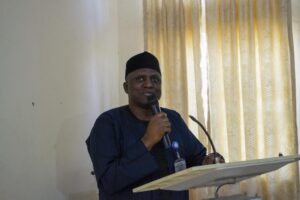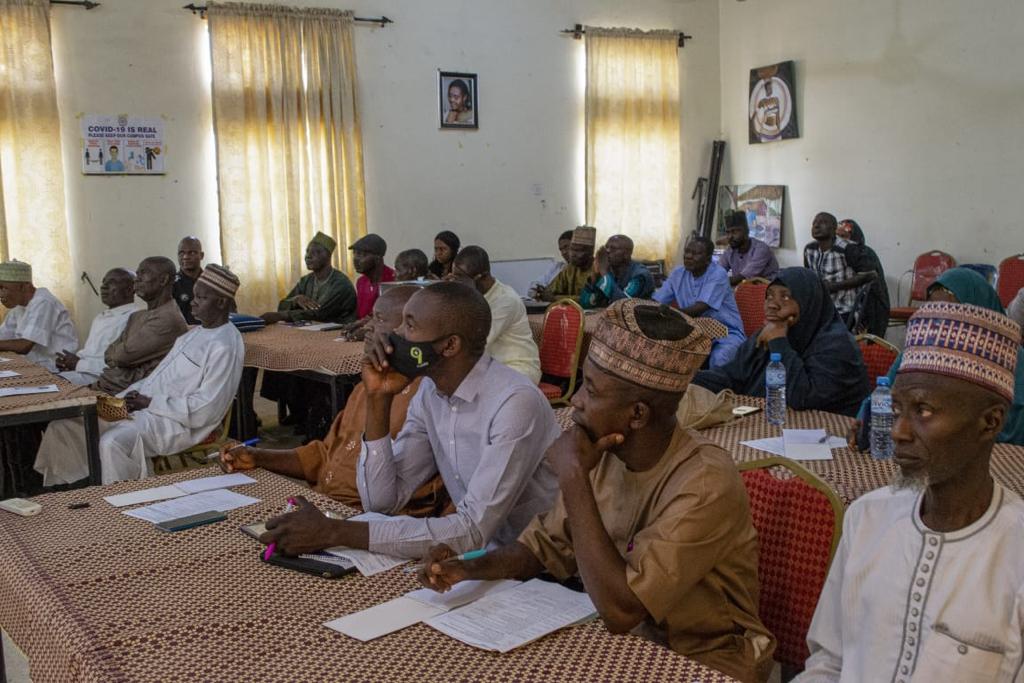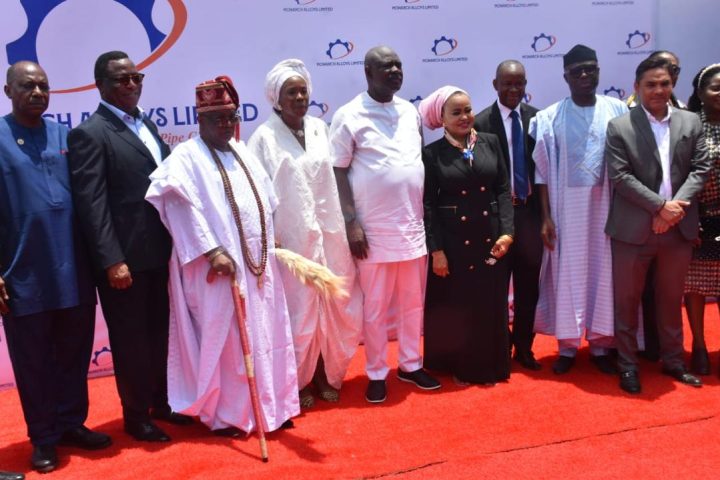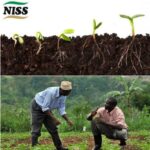The Nigeria Institute of Soil Science (NISS) has urged farmers and extension workers to adopt climate-smart agriculture technologies to boost crop production to feed the growing global population.
The institute organised training for farmers and extension agents in North Central Zone of Nigeria as part of concerted efforts to mitigate the impact of flood on the soil.The hands-on training which is the fourth of its kind and second under the same thematic foci this year, “Climate Smart Agricultural Technologies For Sustainable Crop Production”, took place at the Entrepreneurship Centre, Federal University of Technology, Minna.
Join our WhatsApp ChannelREAD ALSO:NISS, OCP Empower Over 70 Local Farmers In Northern Nigeria
Speaking at the workshop, the Zonal Coordinator NISS North Central Zone, Prof. Akim Osunde, FSSSN, RSS, stated that the continuous increase in world population currently estimated at 8 billion, with 9 billion projections by 2025, would demand an exponential growth in world agriculture output over the coming decades, adding that to feed the growing global population, agriculture would need to undergo a significant transformation.
“FAO estimates that global agricultural production will need to increase by about 70%. Climate change adds extra challenges in reaching this goal, especially in Nigeria where food insecurity and poverty are prevalent. Also, the damaging impact of the extensive flood that ravaged farmlands in twenty-three (23) states of the country today gives credence to the fact that climate change is real.
“Consequently, farmers who suffered the most due to crop and farmland losses are expected to be in the front line, contributing towards a safer environment by engaging in climate-smart agricultural practices,” he disclosed.
Prof. Osunde noted that the Nigerian Institute of Soil Science (NISS) deemed it necessary to organize the workshop for selected extension workers and representatives of organized farmers’ groups at zonal levels to address the issue of Climate Change and Climate-smart Agricultural Technologies and to include a special subject matter topic on “Flooding and Post Flooding Soil Management” which was not included in a similar NISS organized training workshop that held in March 2022.
He further stated that the training is equip the farmers with knowledge of how to plant the right crops and use the right methods and also, ensure food and agriculture returns to areas affected by the floods, especially those areas where food production is their mainstay of livelihood while advising farmers and extension workers to adopt dry season farming to move from food security to food sovereignty.
In his keynote during the workshop, the Vice-Chancellor of the Federal University of Technology, Minna, Prof. Abdullahi Bala, stated that the training could not have come at a better time, as it would give farmers and extension workers the requisite knowledge on the best agricultural practices to mitigate the damage done by flooding on the soil.
Prof. Bala maintained that agriculture is both a culprit and a victim of climate change. This looks like a double-edged sword he said. According to him, many of our current agricultural practices (such as land use change, cultivation methods, deforestation, bush burning, land clearing) damage the environment and are the major drivers of greenhouse gas emissions.
He noted that farmers bear the brunt of some of the adverse effects of climate change such as drought as in the horn of Africa and the recent flooding in Nigeria.

Prof. Bala underscored the need for stakeholders to have a better understanding of climate change and climate-smart agriculture to enhance crop production.
Farmers at the training said the recent flood that destroyed farmlands across the country has cost them a lot, but they were optimistic that the training would help them make up for what has been lost.
Climate Change Impact on Soil: Adaptation and Coping Strategies, Climate Smart Agriculture: Soil Management Practices for Maize Production, Climate Smart Agriculture: Soil and Water Conservation Practices, and Climate Smart Agriculture: Technologies for Rice Production in the North Central Zone of Nigeria were a few of other topics covered by resource persons at the well-attended workshop.
A total of 35 participants attended the workshop comprising two Extension Agents and three Farmers drawn from each of the States of Niger, Kogi, Kwara, Nasarawa, Benue, Plateau, and the Federal Capital Territory (FCT).
Similar training has been conducted in the other five geopolitical zones of the country.
The Nigeria Institute of Soil Science (NISS) is primarily charged with the responsibility for regulating the profession of Soil Science in Nigeria.



















Follow Us